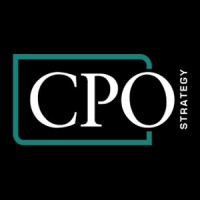A retailer is a final stop for goods in a supply chain before the consumer buys the product. Therefore, being the gatekeeper for consumers; retailers hence have a crucial role to play in the rest of the supply chain.
Meanwhile, European industries have highly consolidated their supply chains. In addition, they have a reputation of being efficient, even with a cross-border presence. Hence, all European countries, including east European regions, have seen a strong network of retail supermarkets, hyper stores, and discount stores.
The average consumer has had a greater choice, convenient availability, and better prices.
Today with the internet being a big part of consumer lives, retail formats have drastically changed. For instance, online-only brands like Amazon have transformed the way supply chains operate. As a result, traditional retailers have witnessed a sharp decrease in margins. They have to innovate because they have no choices.
“Retailers report that 19% of their sales are no longer purchased in physical stores and they expect this share to increase to 27% by 2020”. [1]
Sales from online retail stores are steadily rising. Back in 2014, this global market’s value amounted to $1.34 trillion. In 2018, it was already $2.84 trillion. In 2020, it’s forecast that the revenue will cross $4 trillion. By 2021, it’s expected to reach $4.88 trillion. [1]
Major European retail chains like Carrefour, Morrisons, Decathlon, and Migros have not only integrated private labels to their portfolios but are also self-producing some of their vertical items. In addition, we can see priorities shifting from bare negotiations with top brands to planning & purchasing of raw materials for in-house production.
“By 2021, analysts estimate 53.9% of all ecommerce sales will happen on mobile devices”. [2]
Key necessities for retail supply chains
Check customer pulse
- Retail chains, with the strength of the scale they operate at, have the capability to observe and document consumer demands. Real-time feedback is key for retailers that have in-house produced goods on shelves with other brands
- Increase vertical options & not just premium brands to cater to all economic classes. This can help improve margins drastically
Hire agile procurement workforce
- Category specialists need to be replaced with OR extended to the scope of product development, category management that have some analytical backgrounds
Digitalised solutions
- Since everyday tasks involve not just negotiations, but calculating product value, market feasible prices, brand bonuses, multiple quotations and contacts, solutions that can function in real-time are of critical importance.
Enable tighter compliance and controls
- Cross-docking is replacing traditional warehousing, based on demand. Replenishment tracking using technology to monitor need in real-time is necessary
Maintain information transparency
- Some retailers have begun sharing point of sale information with their suppliers (e.g., Zara). Hence, this ensures suppliers with direct feedback from the consumer.
Collaborate with suppliers
- Retail chains in the UK, France & Spain have now started including suppliers in their supply chains with the goal to reduce total costs & improve overall efficiency.
Supply chain networks in the retail industry are some of the most complex networks. The consumers are in need of speed and convenience in each phase of the buying cycle. One expects retailers to be ready for the challenge. The European regulatory changes like Brexit have imposed uncertainties in Procurement & Sourcing systems.
Such challenges are an opportunity for procurement to provide value by levering technology such as:
- The speed of Source-to-Pay process can increase from the current status.
- One can optimize & standardize number of suppliers & reduce spends
- Suppliers can be incentivised on delivery time, quality, services & price by real-time tracking
This is the new paradigm of retail format. The retailers need to equip themselves and increase efficiency in their supply chains. Advanced & scalable automation technology that is intelligent, easy to use & integrate will be the need of the hour.
Conclusion
The use of such technology solutions will keep suppliers satisfied with process transparency. Besides, this will enhance customer responsiveness, sustain savings, and reduce cycle times.
How Zycus Helped Transform the Procurement Organisation at a Global Retail Giant
Know More about Zycus’ capabilities in Retail here or mail us at marketing@zycus.com
References
[1] https://review42.com/retail-statistics/
[2] https://www.shopify.com/enterprise/the-future-of-ecommerce
Related Read:
- Blog – Five Precepts to Digital Procurement Transformation
- Blog – 5 procurement levers to optimize manufacturing supply chain during a pandemic
- Blog – VUCA approach towards Supply Chain
- Source to Pay Software – Organically built, seamlessly integrated cognitive source to pay software to drive efficiency and value
- White Paper – 5 Steps for effective supply chain management
- Webinar – Driving AP Transformation and Cost efficiency with AI-led Automation- EMEA webinar













































